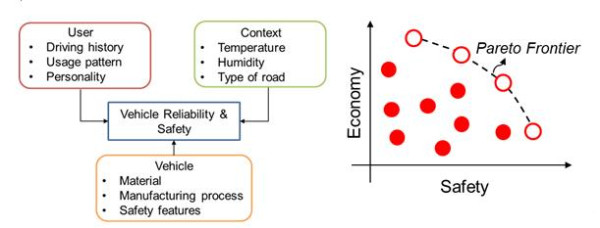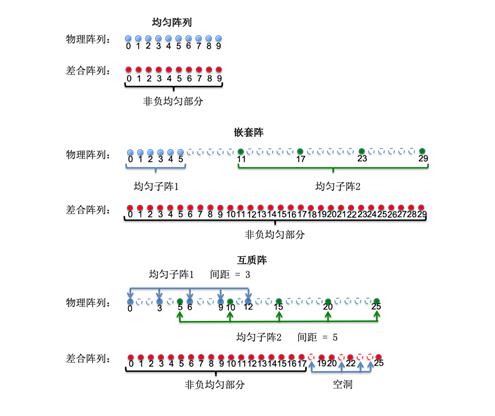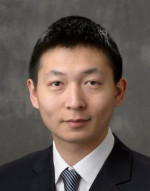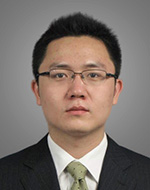The University of Michigan-Shanghai Jiao Tong University Joint Institute (JI) Assistant Professor Youyi Bi and Assistant Professor Heng Qiao secured fund from Shanghai municipal government for their research projects of “Product Optimization Design Method Based on Product Maintenance Data Analysis and Modeling” and “The Robustness Analysis of Sparse Array based Direction-of-Arrival Estimation Algorithms” respectively, as they were listed by the 2020 Shanghai Youth Science and Technology Talent Yangfan Program recently.
Youyi Bi’s main research directions are data-driven design and manufacturing, modeling and simulation of intelligent interconnected systems, and collaborative decision-making in design of complex systems. In recent years, data-driven product design methods are emerging, but current data-driven design mainly utilizes users’ purchase and usage data, rarely involving product repair and maintenance data. The characteristics revealed by these maintenance data are promising in improving product quality and safety. The listed project of Professor Bi takes the engineering parameter design of passenger cars as the application background, and investigates the product optimization design method based on analyzing and modeling product maintenance data. The goal is to optimize the engineering parameters of products and improve product durability while controlling manufacturing costs. The project is also of great significance for improving the quality and safety of China’s domestic-brand cars and the competitiveness of Chinese automotive industry. 
Key factors affecting vehicle reliability and safety and multi-objective optimization
For complex physical products such as automobiles, the cost of obtaining large-scale product maintenance data is much higher than that of virtual products such as Internet applications. Therefore, considering the cost of data acquisition, limited maintenance data can be obtained from physical products. The modeling results of limited data cannot fully reflect product maintenance features and the complexity of the market environment, which leads to bias in product design optimization based on analyzing and modeling product maintenance data. Therefore, this project will propose a product optimization design method based on limited product maintenance data analysis and group behavior modeling. Through system modeling methods (such as Network Model, Agent-based Modeling, Stochastic Actor-oriented Model, etc.), we can simulate and predict the maintenance characteristics of large-scale products in the market, which will preliminarily solve the scarcity problem of physical product maintenance data. 
An example of system modeling: using network models to model complex relationships between users and products(Source:M. Wang et al., Des. Sci., vol. 2, e11, 2016)
Heng Qiao’s research is mainly focused on the theory of sparse array, including both new sparse array geometries and new generation of high-performance array signal processing algorithms. Traditional array structures and corresponding algorithms fail to meet the emerging applications’ need, especially when a large number of targets are present, and the measurements are limited. Besides, the complexities of the system design and computation are high. These technical bottlenecks are to a large extent resolved by the recently developed theory of sparse array, which has been widely used in modern radar, wireless MIMO communication system, autonomous driving, indoor localization and sensor network. Compared with traditional array structure, the major advantages of sparse array are its ability to fully exploit the structural information of the signals of interest, and its potential in combing different areas including compressed sensing and super resolution. 
Emerging Applications of DOA Estimation Algorithms:(a) Wi-Fi based Indoor Localization (©ACCUWARE) (b)Autonomous Driving (©NXP)

Uniform Array, Nested Array, Coprime Array and their virtual co-array(Non-Negative Part)
The listed project of Professor Qiao is to study the core question in array signal processing, that is the direction-of-arrival estimation. DOA estimation is essential to radar and sonar and plays an important role in modern applications such as indoor localization and autonomous driving. Sparse array based DOA estimation algorithms outperform the others in detecting more sources than physical sensors. This is important when the physical aperture is limited by the platform or the targets’ number is large. In practical applications, the number of measurements is limited due to the movements of the targets. But the study of sparse array in current literature cannot provide robustness guarantees and fail to guide the design of high-performance algorithms. The project aims to fill this gap by utilizing the most recent results in the research of compressed sensing and harmonic analysis and provide a rigorous analysis framework of the sparse array based DOA estimation algorithms. Moreover, the project will work on proposing new DOA estimation algorithms to improve the resolution and robustness. At last, the project will also try to extend the analysis to other relevant applications like MIMO communication and sensor network.
Background Information
 Youyi Bi received his bachelor’s and master’s degrees in Mechanical Engineering and Aerospace Manufacturing Engineering from Beihang University in 2009 and 2012, respectively, and received a doctorate degree in Mechanical Engineering from Purdue University in 2017. He worked at Northwestern University from 2017 to 2019 as a post-doctoral fellow. He joined the University of Michigan-Shanghai Jiao Tong University Joint Institute as an assistant professor in August 2019. His main research directions include data-driven design, design optimization, product design theory and methods, intelligent interconnected systems, network analysis and modeling.
Youyi Bi received his bachelor’s and master’s degrees in Mechanical Engineering and Aerospace Manufacturing Engineering from Beihang University in 2009 and 2012, respectively, and received a doctorate degree in Mechanical Engineering from Purdue University in 2017. He worked at Northwestern University from 2017 to 2019 as a post-doctoral fellow. He joined the University of Michigan-Shanghai Jiao Tong University Joint Institute as an assistant professor in August 2019. His main research directions include data-driven design, design optimization, product design theory and methods, intelligent interconnected systems, network analysis and modeling.
 Heng Qiao is currently an assistant professor of the University of Michigan-Shanghai Jiao Tong University Joint Institute. He received his B.E. from Tsinghua University in 2012, M.S from University of Maryland, College Park in 2016 and Ph.D. from University of California, San Diego in 2019. He joined JI in March 2020. His research interests are in sparse array, compressed sensing, super-resolution, harmonic retrieval and underdetermined inverse problems. He has received multiple awards including the best student paper award at ICASSP 2017.
Heng Qiao is currently an assistant professor of the University of Michigan-Shanghai Jiao Tong University Joint Institute. He received his B.E. from Tsinghua University in 2012, M.S from University of Maryland, College Park in 2016 and Ph.D. from University of California, San Diego in 2019. He joined JI in March 2020. His research interests are in sparse array, compressed sensing, super-resolution, harmonic retrieval and underdetermined inverse problems. He has received multiple awards including the best student paper award at ICASSP 2017.





